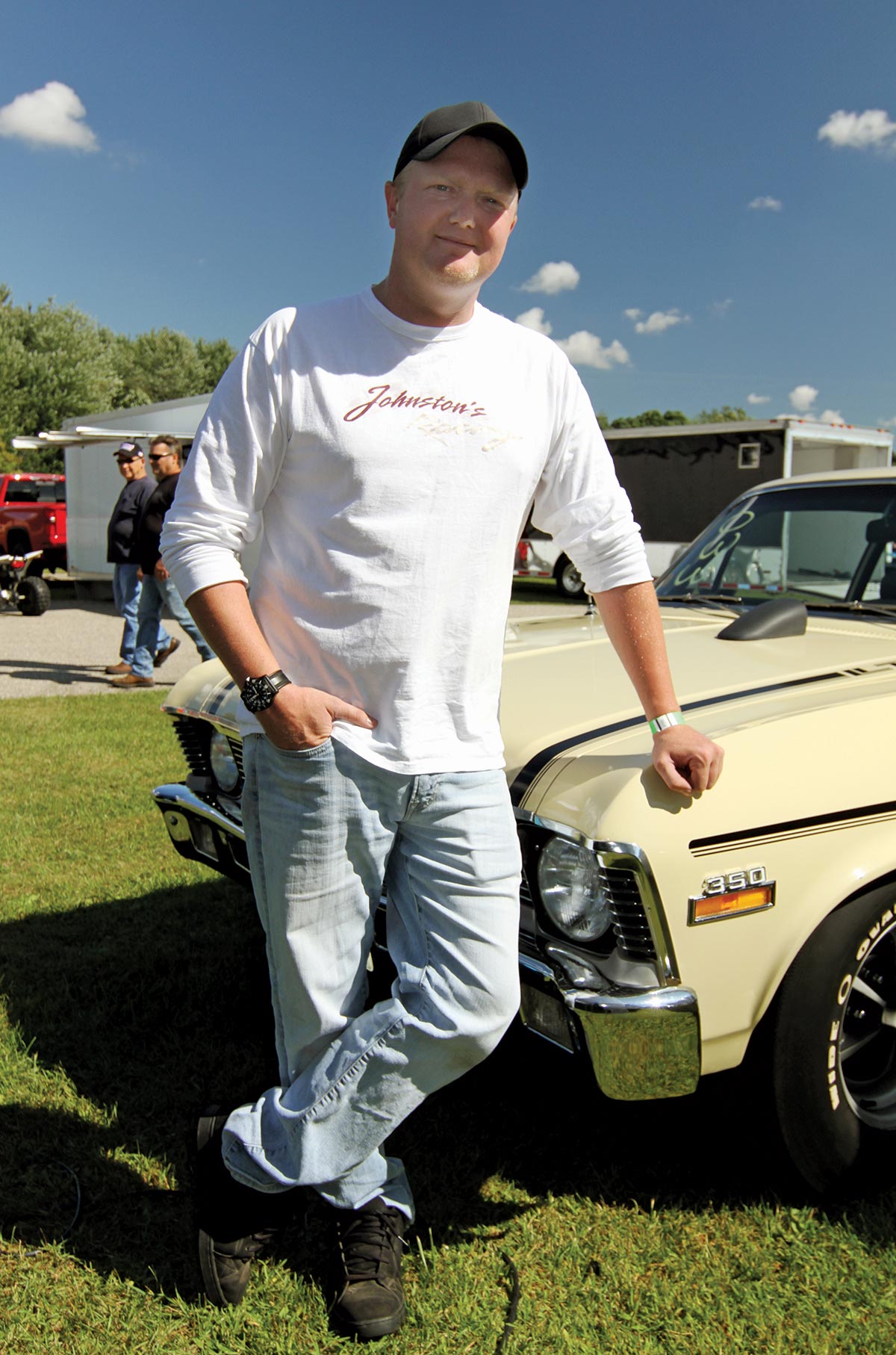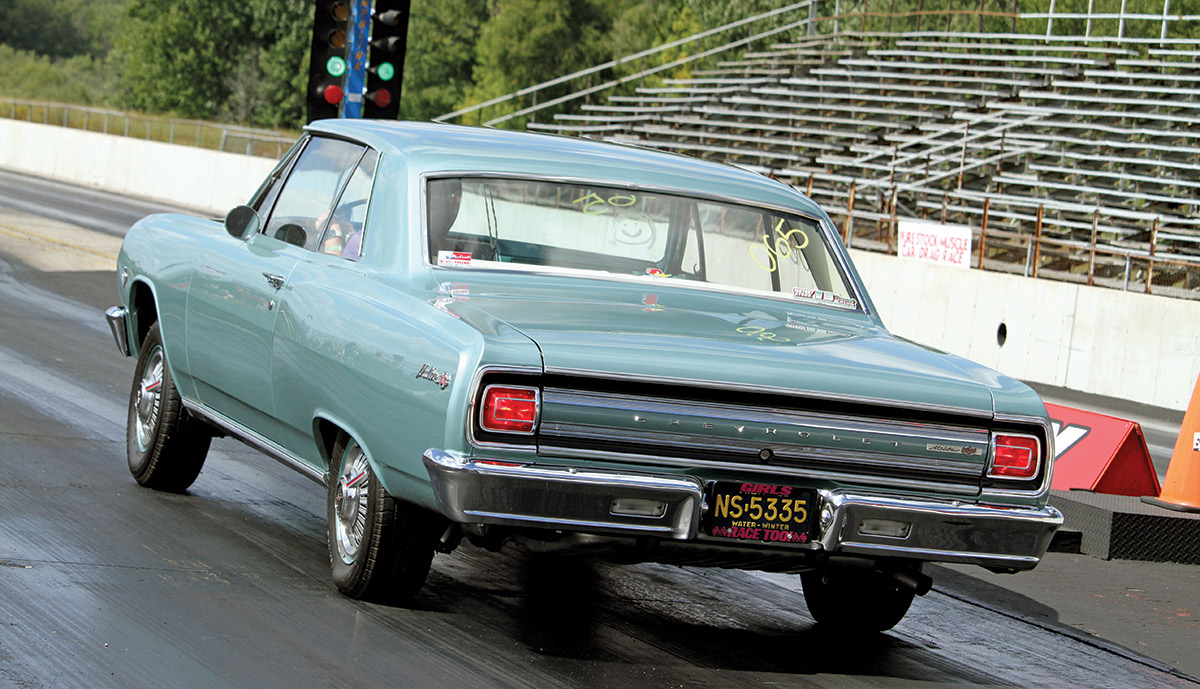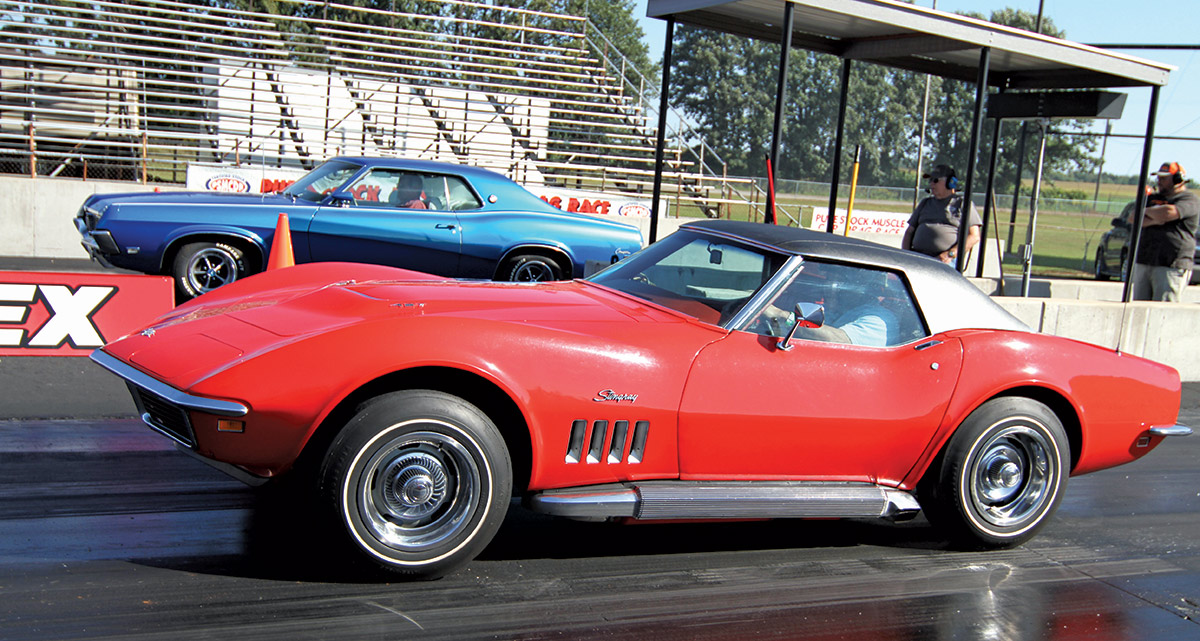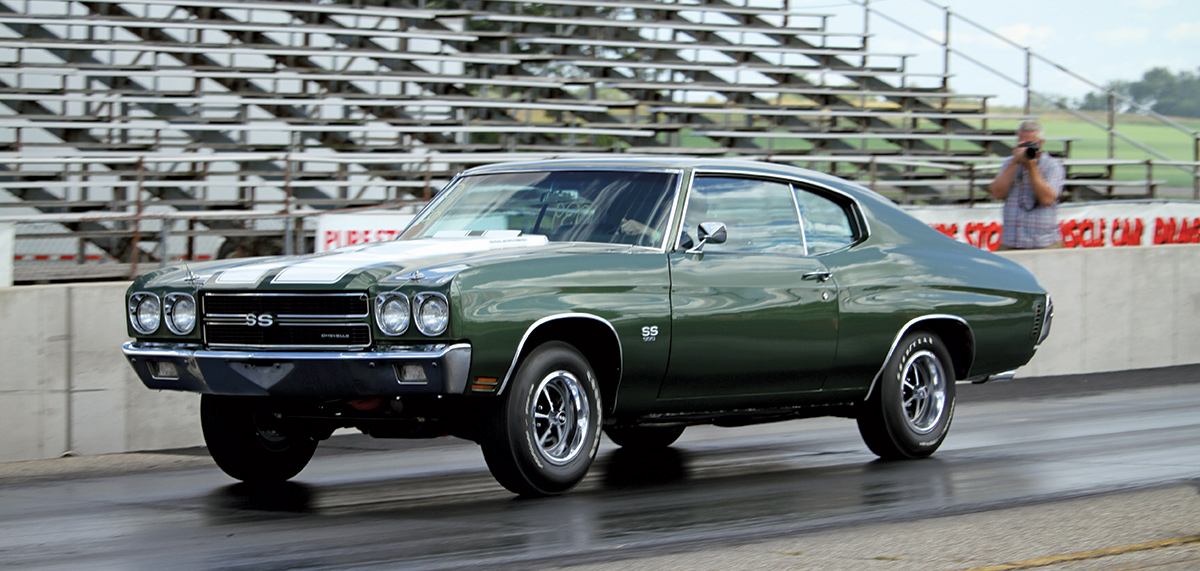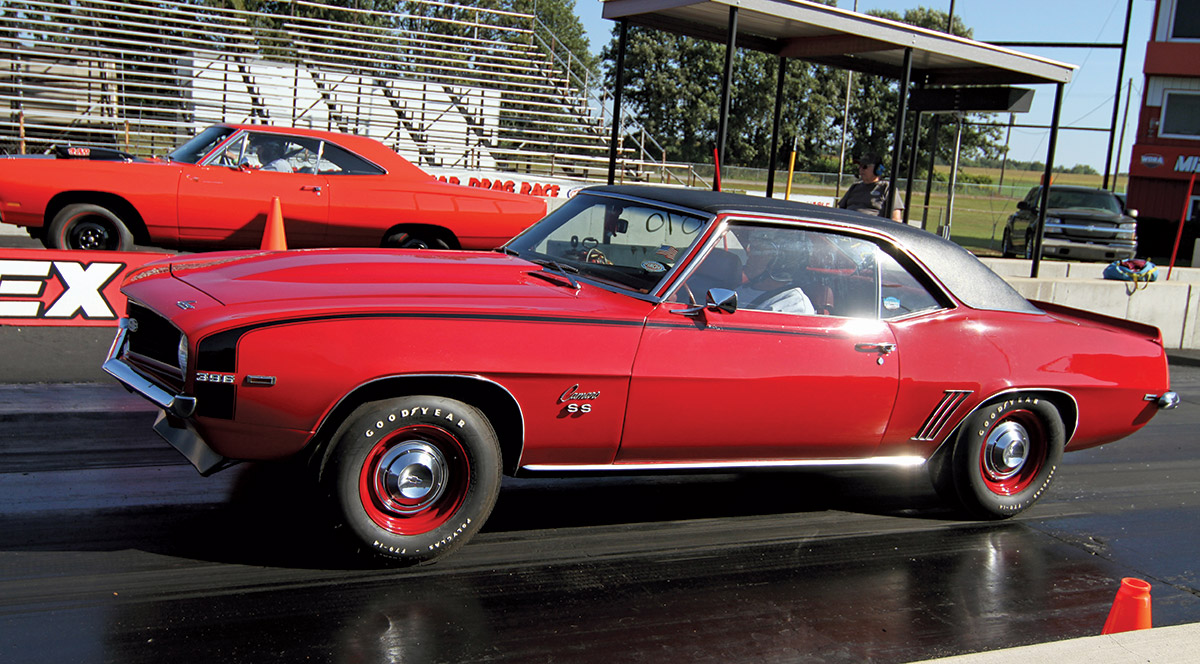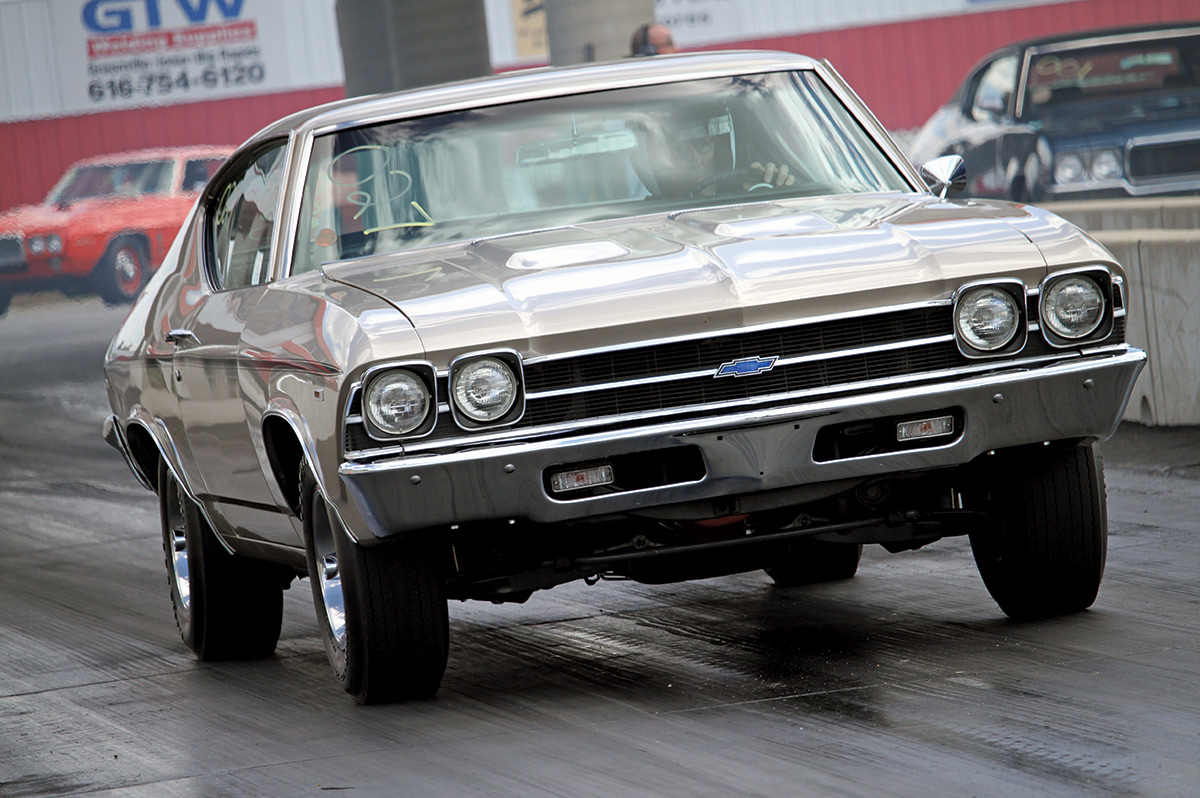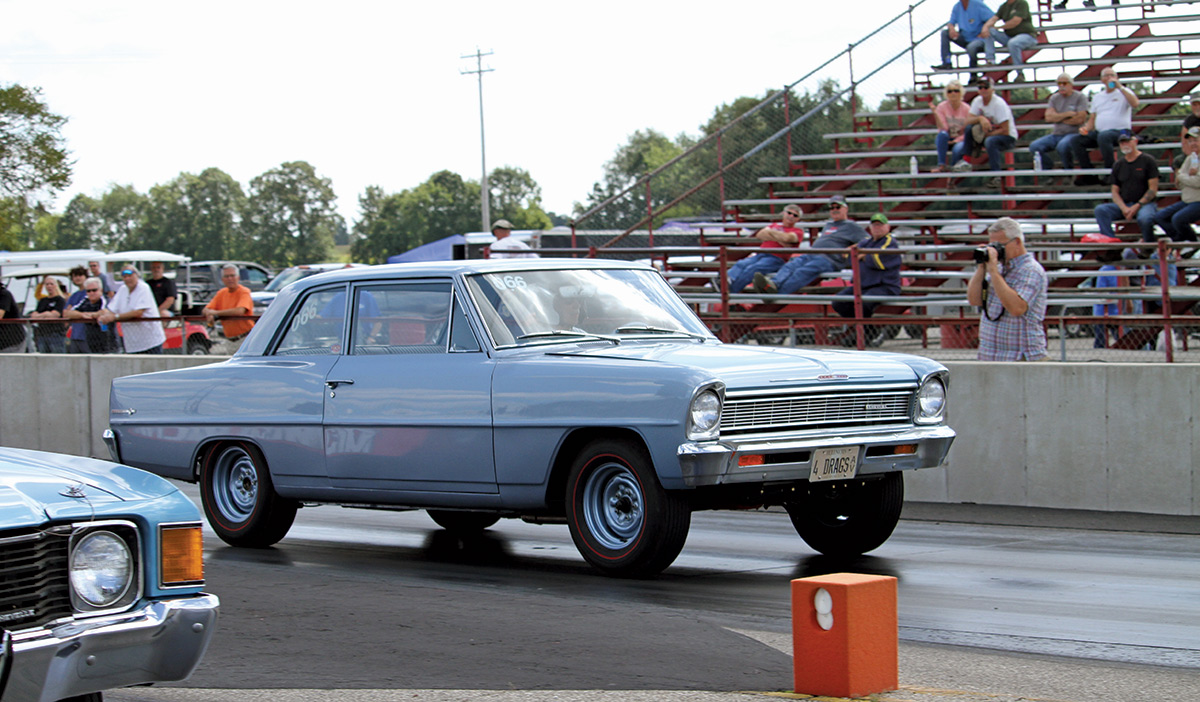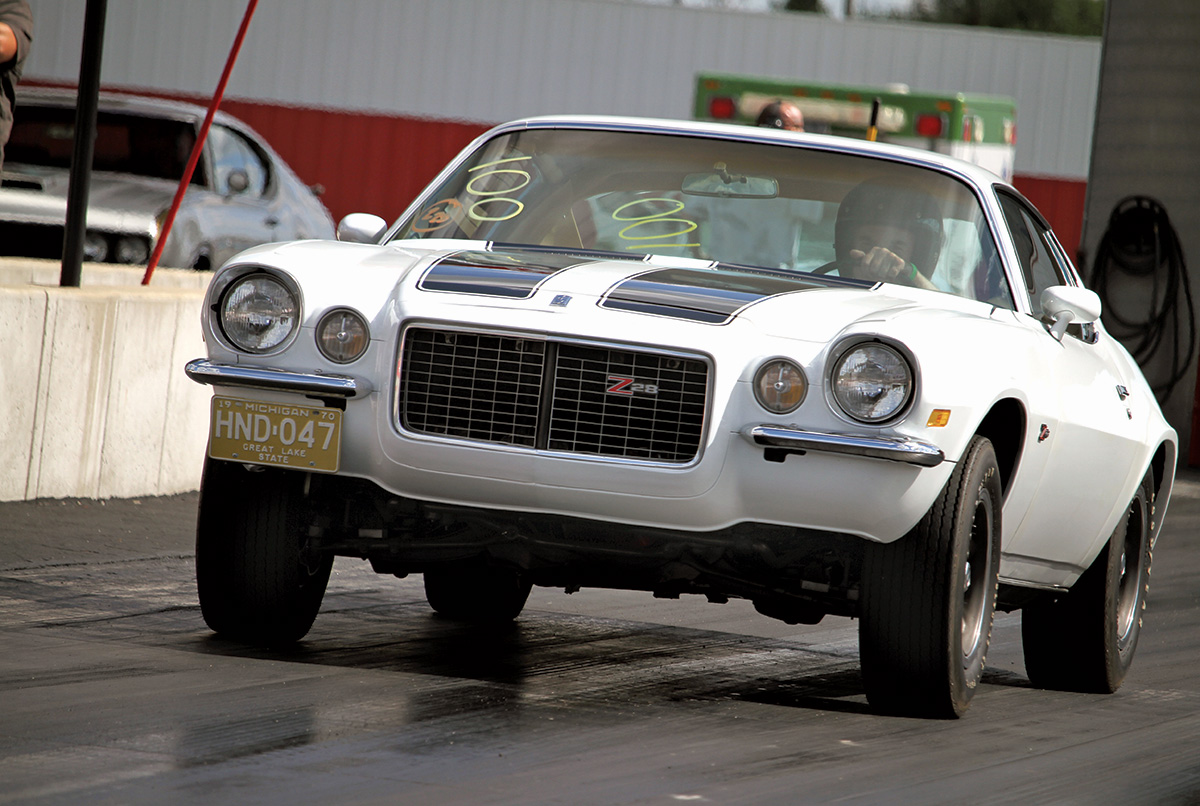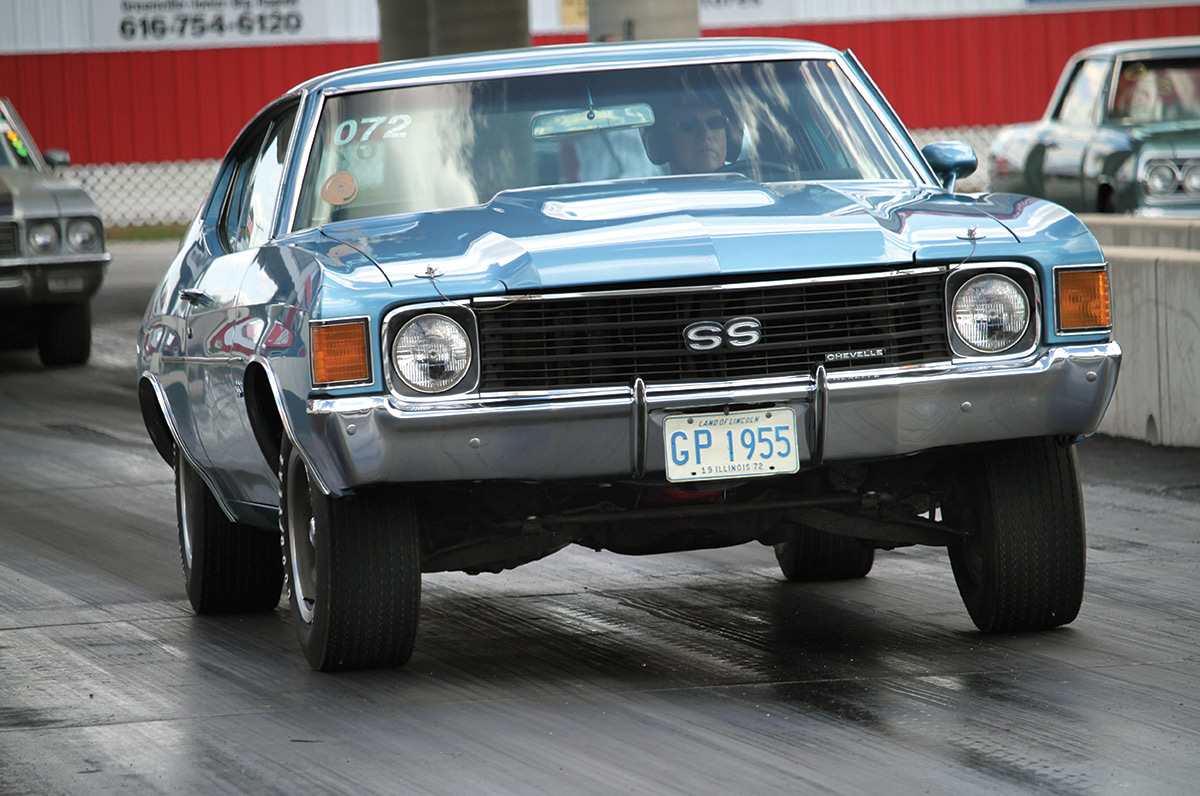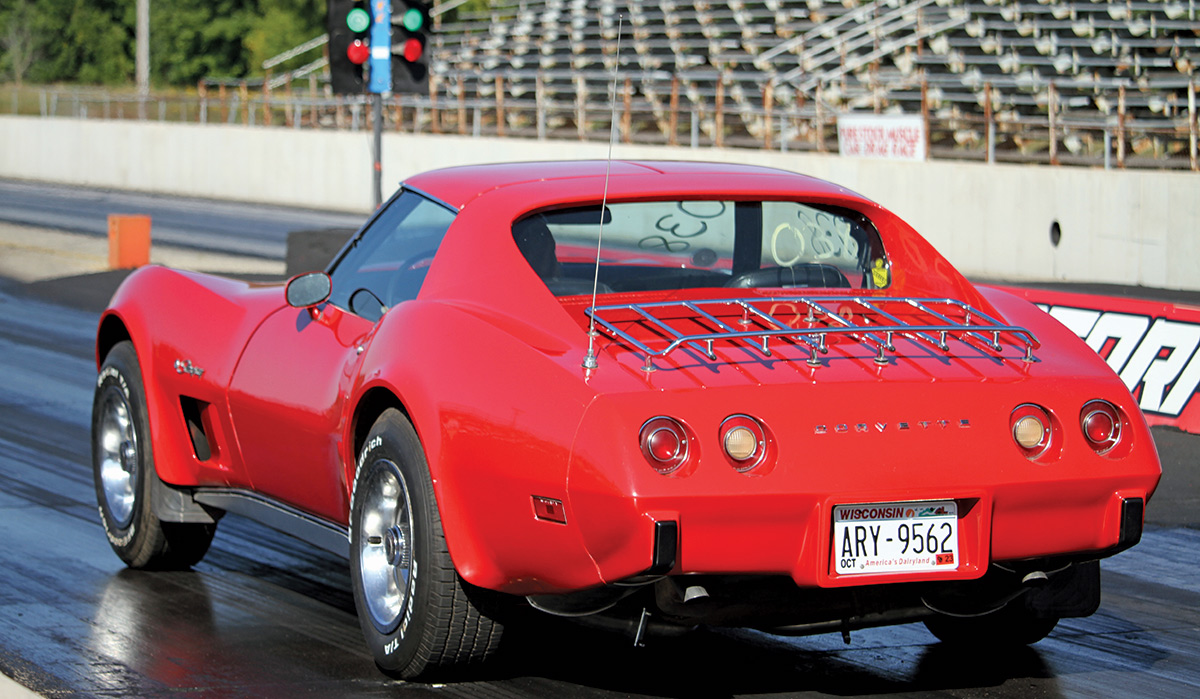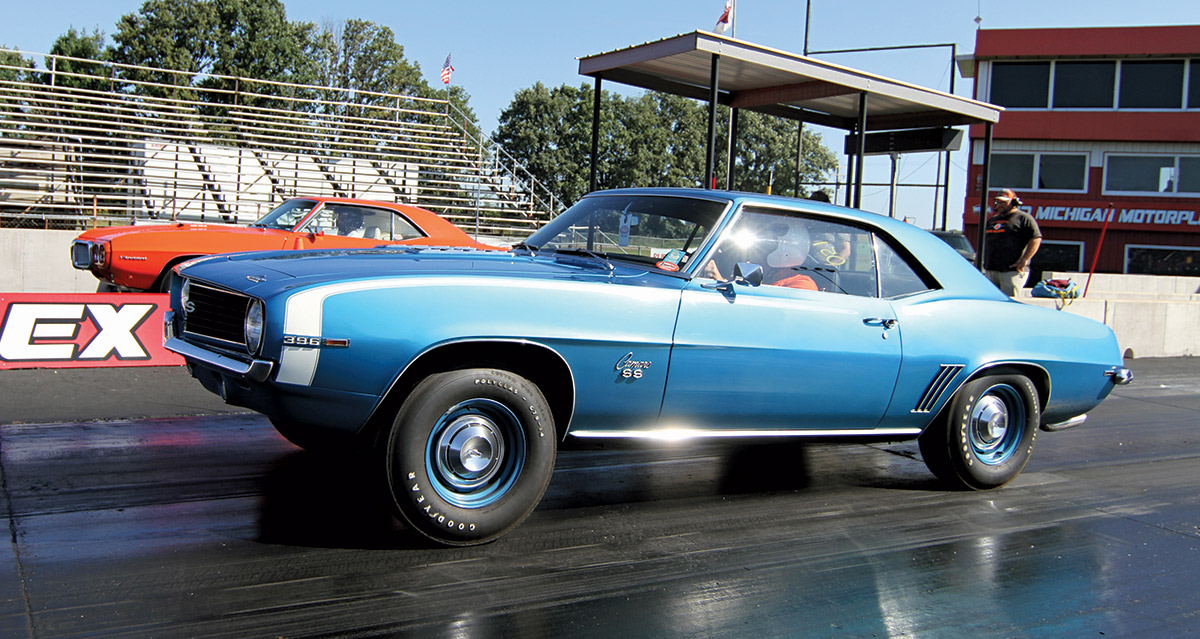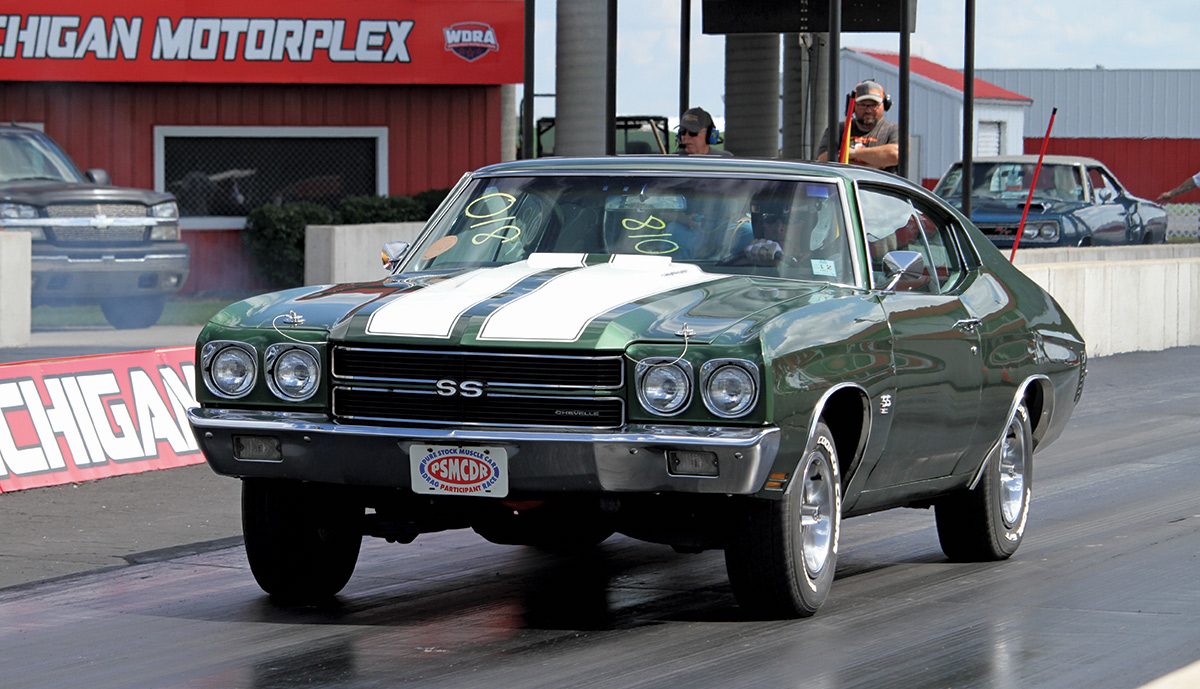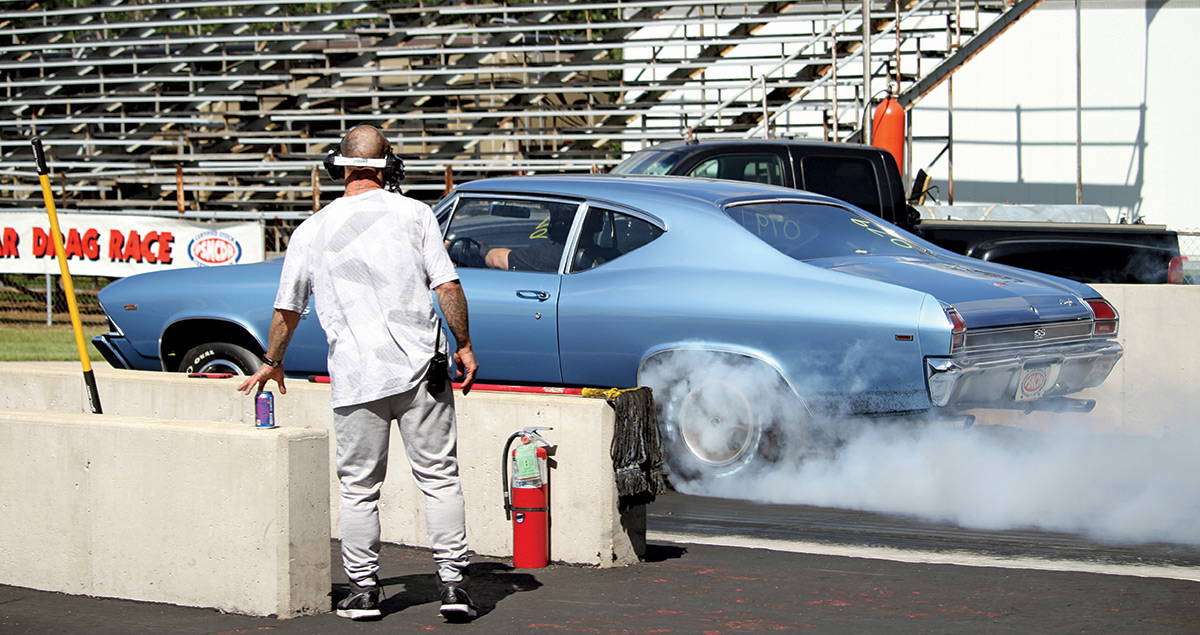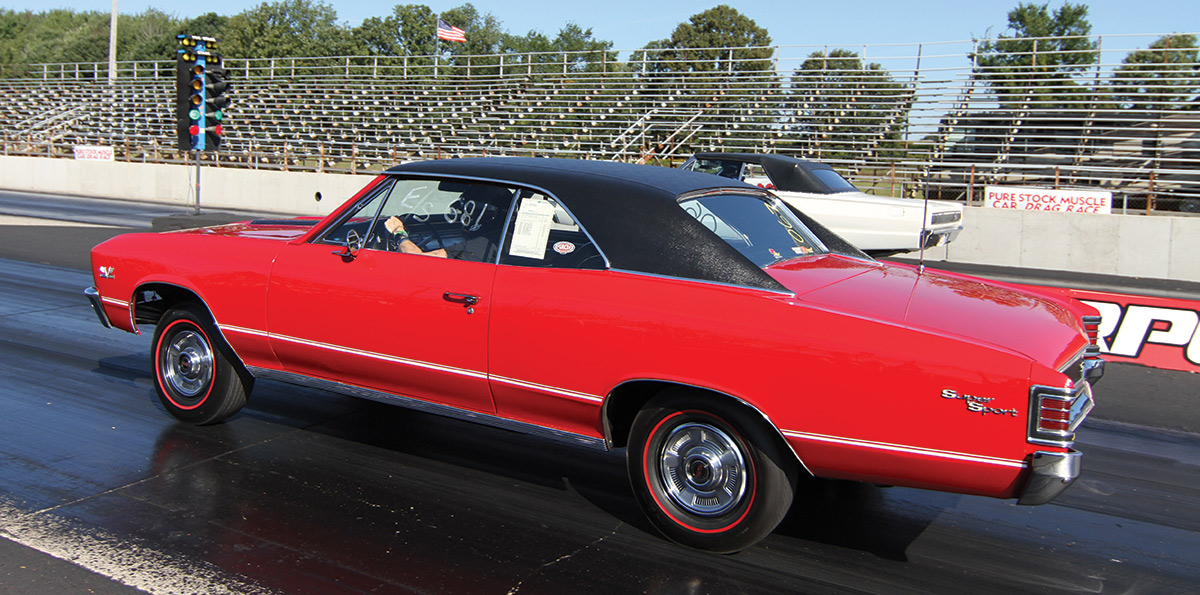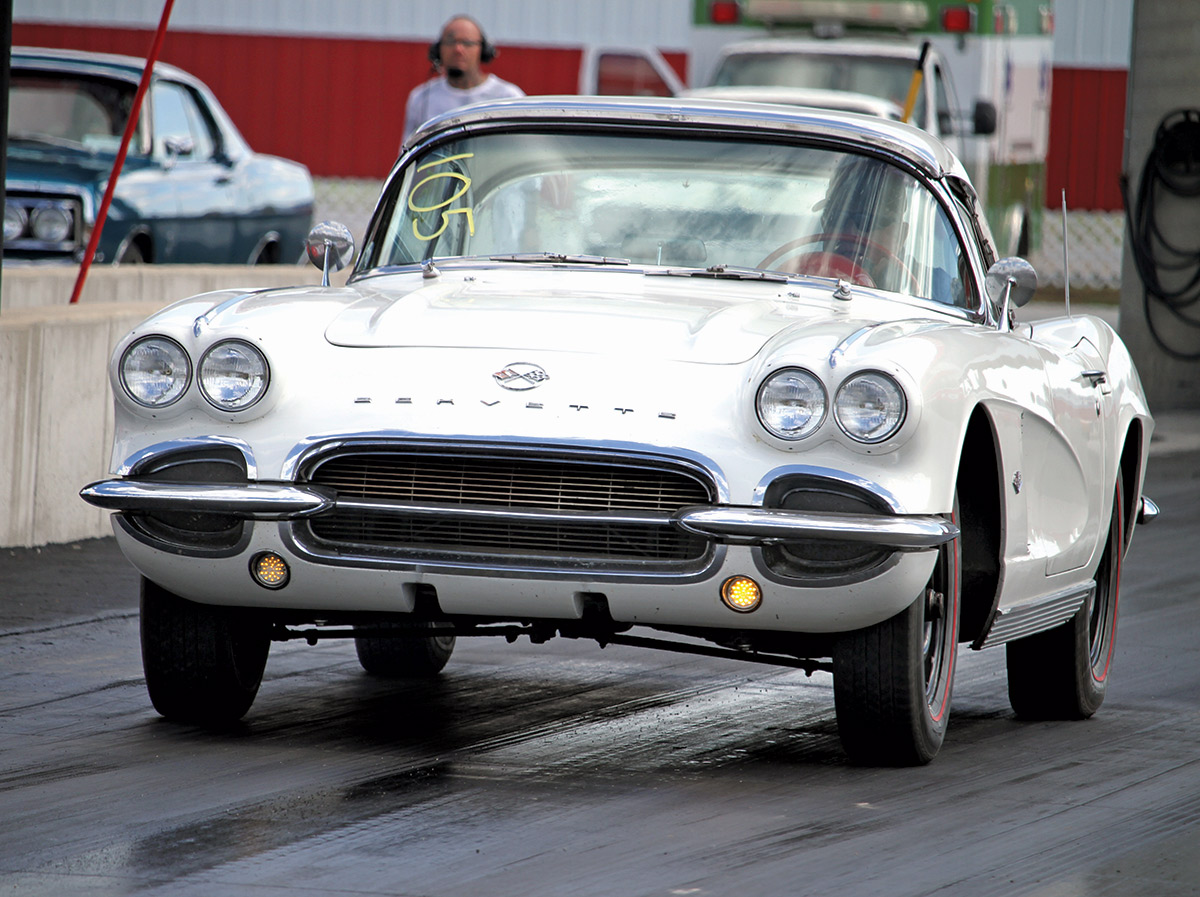 EVENT
EVENT
By barry kluczyk  Photography by The Author
Photography by The Author
wen Simpson raised more than a few eyebrows on a cool September morning when his ’70 Yenko Deuce cut the beams in 11.88 seconds at Mid Michigan Motorplex—a track more than 200 miles away from his home in rural Ontario, Canada—during the Pure Stock Muscle Car Drag Race.
It was not only the quickest pass for a Chevy at the race—and second-quickest overall, behind only a Hemi Mopar—it was the quickest-ever pass for a small-block-powered car in Pure Stock Drag’s history and the highlight for a competitor who’s been coming to the race since his high school days more than 15 years ago. It’s a legacy that builds on his father “COPO Pete” Simpson, who’d been a fixture at the event since its very beginning until his death about a decade ago.
“It’s a family tradition,” Owen says. “My dad was competing here from the very start of the race and it’s just something we do.”
The 2023 event was the 29th running of the Pure Stock Drags and the formula remained the same: After a day of qualifying runs, competitors are matched up by the closest e.t.’s and roll into three-round heads-up shootouts. The best two out of three, wins.
“The goal from the very beginning was to give owners a place to enjoy their cars the way they were always intended,” event co-founder Dan Jensen says. “The cars are as evenly matched as we can make them for heads-up racing. It makes for some great matchups that often come down to a hundredth or thousandth at the finish line.”
When it comes to Pure Stock Drag rules, they’re pretty simple: Participants’ cars must have been originally offered with a 12-month/12,000-mile warranty (to weed out the factory race cars). They must also have been equipped with at least a single four-barrel carb, dual exhaust, and other factory performance components.
There is some flexibility with the engine specs to accommodate rebuilds, such as a 1.5-point allowance for compression, but the spirit of factory-stock performance trumps all. Ringer cars that, you know, run 10s are politely shown the exit. In fact, running quicker than 11.50 will get you pointed straight back to your trailer, but for track safety rules more than “is it really stock?” conspiratorial reasons.
Sandbaggers who amazingly run four-tenths and/or 4 mph or quicker in the shootout versus qualifying are also disqualified.
Also: The cars must also run on tires no more than one size larger than stock, with 60-series rubber being the widest. And believe us, those repro bias-ply tires hook amazingly well. Fifty years of track prep advancements help a bunch, too.
There were more than 50 shootout matchups for the 2023 event, with Chevys in the four-quickest pairings. In addition to Owen they included Tim Clary and his ’69 Chevelle SS 396, Bruno Beltrame (another Canadian racer) and his ’69 Camaro SS-396, and Jim Lerum running a ’69 COPO Chevelle. That Hemi stayed ahead of Owen throughout the race, but it’s no less satisfying to see he and his compact, small-block-powered Nova giving the mighty Mopar a good run for its money.
As always, the real trophy for other shootout wins was the satisfaction of conquering a Brand X rival, including Michigan-based racer Victoria Waligora, who wheeled a ’69 big-block Camaro around a Six-Pack ’Cuda for her series win. More than that is the fun and camaraderie of a weekend of gear-banging with dozens of other muscle car racers regardless of the outcome.
Go to psmcdr.com for all the rules and details on the next event.
